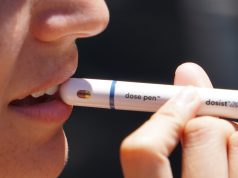Four years ago on Valentine’s Day, 17 people were shot dead by a lone gunman at Marjory Stoneman Douglas High School in Parkland. A few weeks later, thousands of people from coast to coast demonstrated their anguish, frustration and sorrow at the original March for Our Lives protests.
After the recent shootings at Uvalde and Buffalo, that protest was repeated this past Saturday. Thousands again gathered in response to the lack of attention to gun control and school safety. People of all ages mourned the victims and called for an end to the killings.
In the span of two weeks after the shooting in Uvalde, organizers planned nearly 400 marches nationally.
Caplin News reporters fanned out at three of those protests in Parkland, Coral Gables and Washington D.C.
“Four years later we still have to march for the right to go to synagogue, or church, or school, or the grocery store, without getting shot,” said Zoe Weissman, the director of the Parkland chapter of March for Our Lives, an organization created by M.S.D. students and alumni in response to the tragedy.
On Saturday, they kicked off their march at 10 a.m. in Pine Trails Park, just two miles from MSD. About 1,000 people came together to hear from a victim of domestic violence, students and teachers of MSD, as well as the Circle of Brotherhood, which focuses on inner-city violence that plagues the Black community. The event highlighted gun violence issues including suicide and hate crimes.
“You can’t put a price tag on our head, on our life,” said Romania Dukes, who founded Mothers Fighting for Justice after her 18-year-old son was killed by a stray bullet 10-feet in front of her.
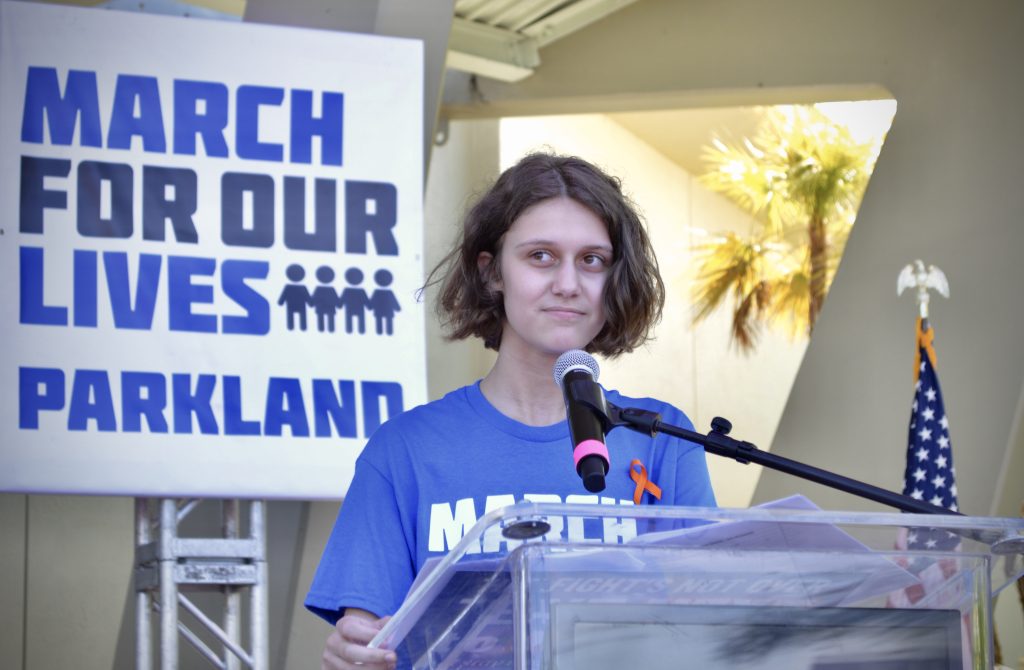
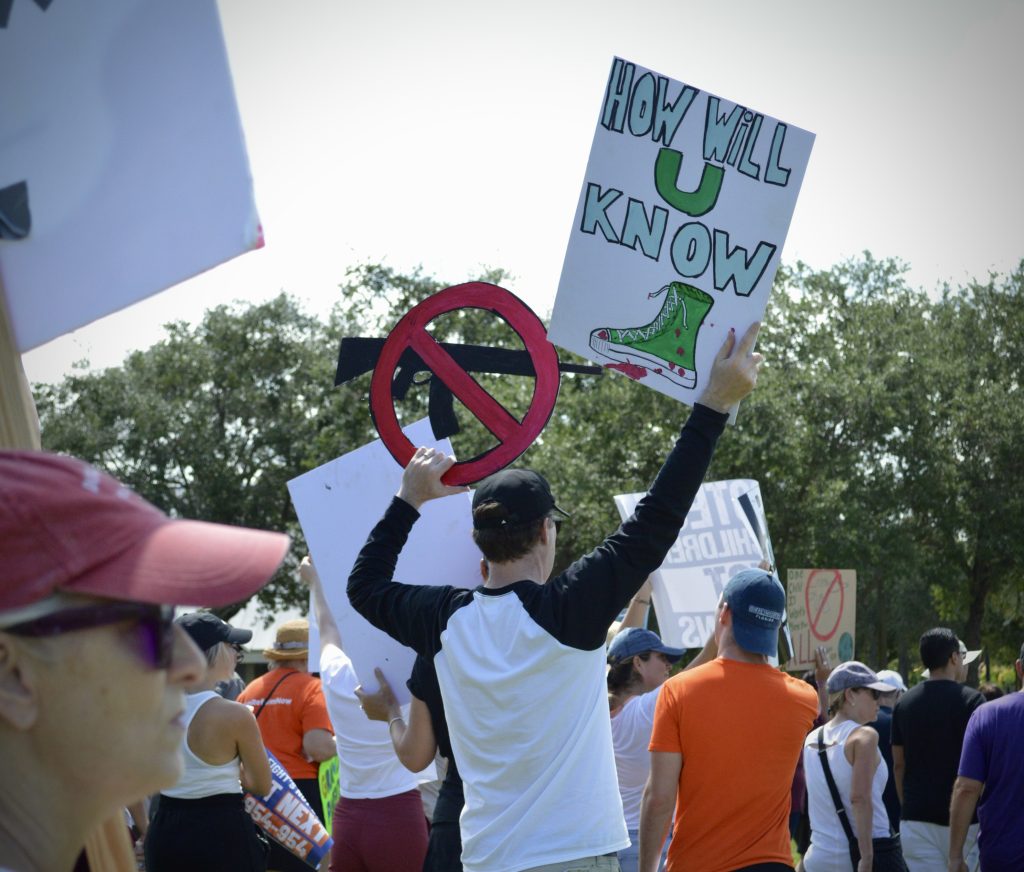
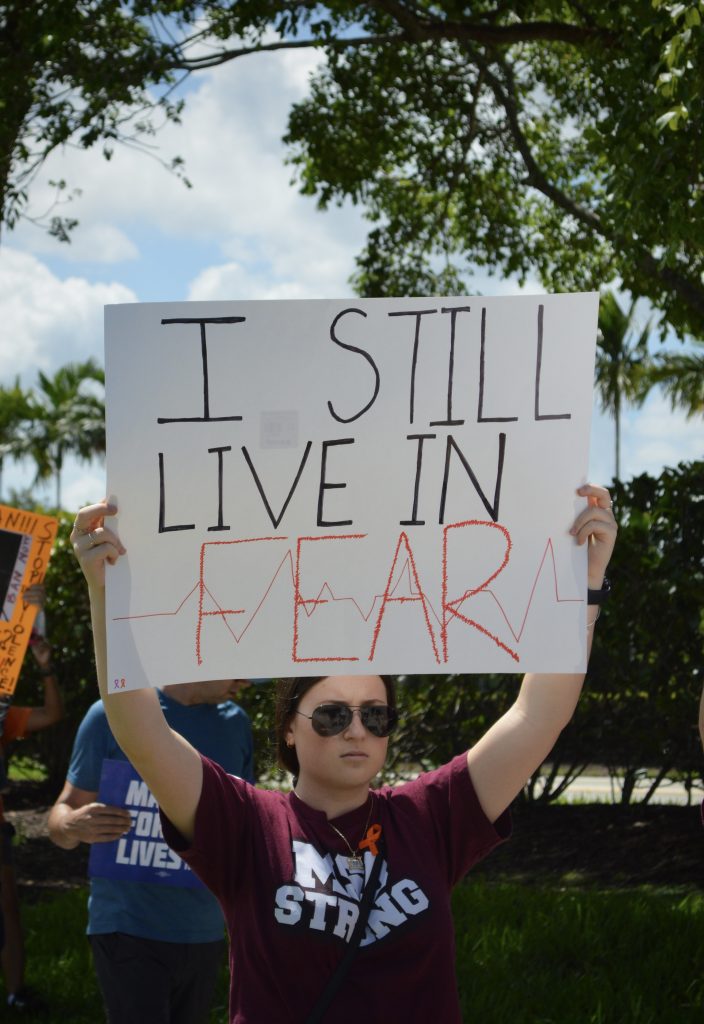
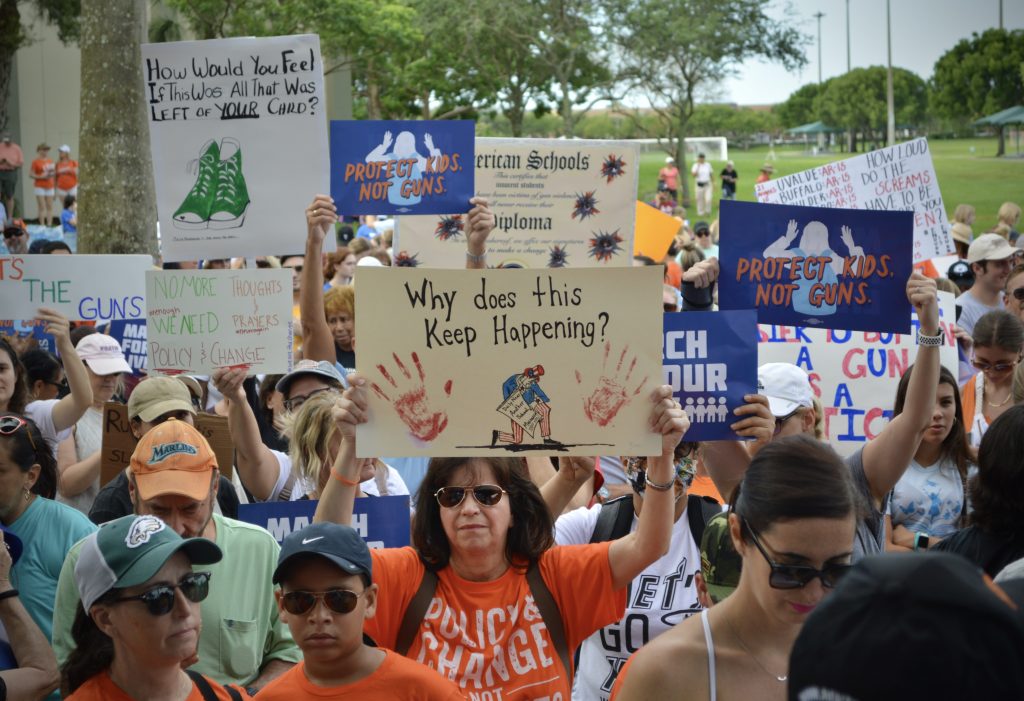
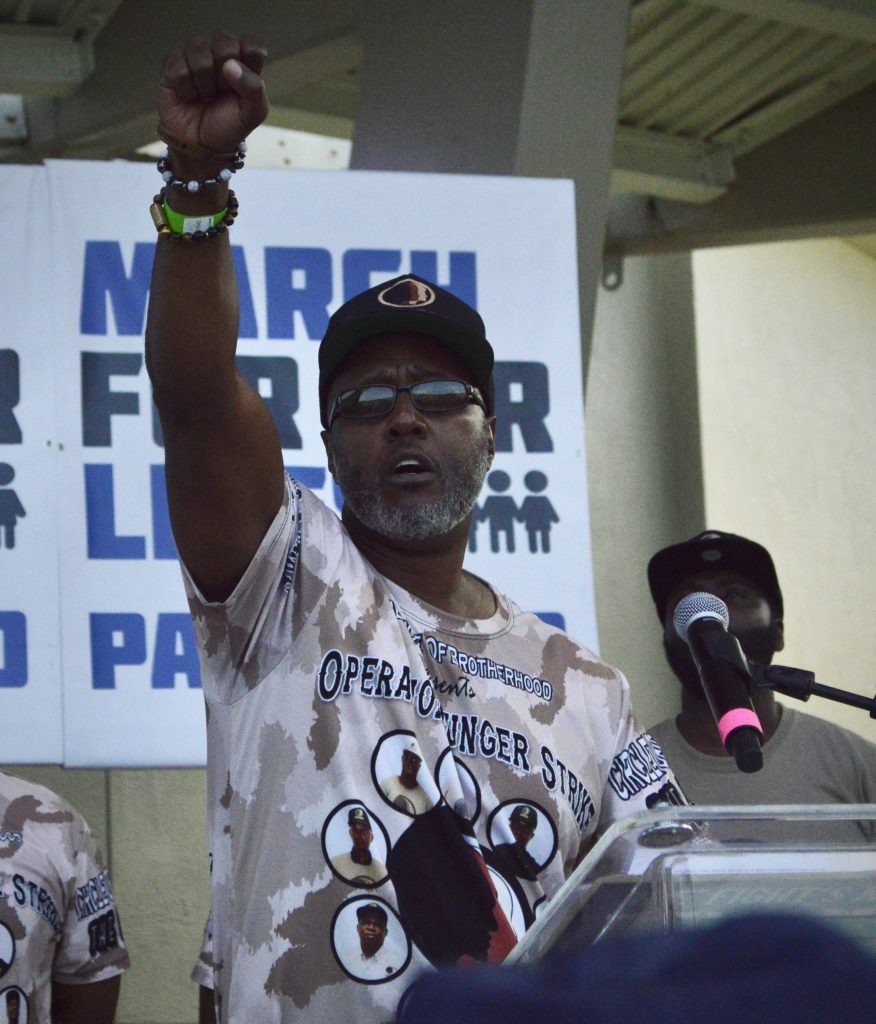
In front of Coral Gables City Hall, activists and protestors gathered to show support for gun-safety measures. The mayor of Miami-Dade, Daniella Levine Cava, spoke about the need for state and federal governments to create laws to prevent more senseless violence. Pastors said prayers and about 500 people carried signs urging an end to the violence.
In Washington D.C., a crowd of 50,000 gathered in front of the Washington Monument. Big names related to the Parkland shooting, such as David Hogg, Manny Oliver, and Cameron Kasky came out to support the movement. More than an hour into the march, there was a shooting scare, causing people to run in panic and fear. Nobody was hurt and police apprehended the man who caused the distraction.
Four years ago, the march had an air of hope and optimism to it. But this time there was a common theme of frustration and anger about having to protest again to end gun violence.
The 2018 march was a catalyst for some change in Florida. On March 9, former governor Rick Scott signed the “Marjory Stoneman High School Public Safety Act,” which raised the minimum age to buy a gun from 18 to 21. One controversial part of the act was the “Coach Aaron Feis Guardian Program” provision, which looked to arm teachers.
In 2021, Florida legislators approved a “red flag” law that would allow judges to order potentially dangerous individuals to surrender their firearms.
Despite the changes, there have been 119 school shootings nationally — as well as many more mass shootings since 2018.
“Congress is drowning in the blood of this country’s children,” said Weissman in her speech.
The day after the march, Congress announced a bipartisan proposal to combat gun violence. Led by Sen. Chris Murphy, D-Conn., and Sen. John Cornyn, R-Texas, the legislation includes measures for enhanced background checks for gun buyers and “red flag” laws. It remains to be seen whether the measure will be approved, but backers claim to have the 60 votes necessary for passage.
Parkland’s Weissman is hopeful.
“Congress has already made strides towards gun violence prevention,” she said. “I also think it’s really important that we have full statewide candidates and politicians in general [that support gun control].”
Print story by Arianna Otero and Natalie La Roche. Videos stories by Nicole Castañeda, Amanda Gray, Moises Pinell and Ivette Franco.

































